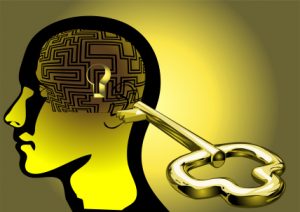The busy mind can become strained and weary. It is important to know how to refresh the brain and allow it to perform at optimum ability. Individuals with stressful jobs and careers that involve a very actively involved mind need more than mere rest but also a freshness of the brain that allows them to perform. Self Hypnosis is a way one can remain sharp and fresh. Self Hypnosis throughout the day is an excellent tool for individuals who need to be mentally alert and ready to resolve issues

The article, “Master the art of self-hypnosis to find your inner peace” by Paul McKenna reviews the importance of self hypnosis in keeping the brain fresh and sharp. He references how Einstein would utilize microsleep as a way to keep the mind fresh. Likewise, the importance of the mind’s reset prior to sleep onset can make the mind more fresh. Studies have shown that those with this type of micro sleep performed better even solving math problems. Hence McKenna compares this type of midpoint between sleep and consciousness as critical to a more peaceful, calm and fresh mind. Self-Hypnosis is an excellent way to achieve this state. He states,
“Sleep is where you are unconscious — you go through different stages and you dream. Hypnosis is much more like daydreaming for the majority of people. Commonly, people lose awareness of time, they stop focusing on things going on in the external world and they start focusing on things in their internal world. They usually feel profoundly relaxed. If I have a creative problem, I will often do self-hypnosis to help me unlock whatever is blocking the free flow of my thoughts. “
“Master the art of self-hypnosis to find your inner peace”. Paul McKenna. January 1st, 2023. Daily Mail.
McKenna continues within the article by introducing the reader to the best ways for self hypnosis and its many benefits. To read the entire article, please click here
Commentary
Hence, self hypnosis can bring about a calming effect on the brain but also allow it to reset and be more sharp. Below is more detail on self hypnosis, how to do it and its benefits.
Self Hypnosis
Self-hypnosis is a form of psychotherapeutic technique in which an individual induces a trance-like state of heightened suggestibility, through the use of mental imagery, relaxation techniques, and verbal repetition. It can be used to facilitate cognitive and behavioural change, reduce stress, enhance creativity, and increase self-awareness. Self-hypnosis is thought to work through enabling an individual to access inner resources for problem solving or goal setting that may not otherwise be readily available.
Self hypnosis is a process of inducing a heightened state of psychological receptivity and focus which allows for the reprogramming of thought patterns via conscious suggestion. In order to access this altered state, it is necessary to engage in a series of preparatory activities that facilitate the entry into the trance-like state. These activities include relaxation, concentration, ideomotor response, and imagery/visualization.
Self hypnosis has been associated with a variety of beneficial psychological outcomes, such as enhanced emotion regulation, improved decision making and increased resistance to pain. Research suggests that self-hypnosis can reduce levels of anxiety, depression and stress, as well as increase the individual’s ability to cope with difficult situations in their life. Moreover, this psychological tool has been linked to better concentration and memory performance due to its ability to aid in cognitive restructuring and mental focus. Through self hypnosis, individuals may be able to facilitate change at the neurological level by making use of neuroplasticity. This allows for the development of new neurologic pathways that are associated with improved cognitive functioning and enhanced emotional regulation.
Micro Sleep
Microsleep is a phenomenon characterized by brief periods of sleep that occur involuntarily and unexpectedly during wakefulness. It has been found to be beneficial in certain contexts due to its ability to increase alertness and improve cognitive performance. Specifically, microsleep can improve reaction time, attentional processes, and motor control during the period of time following its occurrence. In addition, microsleep may have protective effects against excessive fatigue.
Microsleep and hypnosis are two distinct phenomena that have been studied extensively over the years. Microsleep is a brief episode of sleep that occurs involuntarily in the midst of an individual’s normal waking activity, typically lasting from one to thirty seconds. It is a phenomenon characterized by brief periods of sleep that occur involuntarily and unexpectedly during wakefulness. It has been found to be beneficial in certain contexts due to its ability to increase alertness and improve cognitive performance. Specifically, microsleep can improve reaction time, attentional processes, and motor control during the period of time following its occurrence. In addition, microsleep may have protective effects against excessive fatigue. Hypnosis, on the other hand, is a trance-like state that involves heightened suggestibility and responsiveness to verbal or non-verbal cues. It is characterized by a deep relaxation of the body and alterations in perception, cognition, and behavior.
Both have similar effectiveness though in helping the mind become more fresh. Self Hypnosis obviously is more intentional and can provide many of the benefits in refreshing the mind.
Conclusion

In conclusion, self hypnosis can be a powerful tool for personal growth and development. It can help you to achieve your desired outcomes, reduce stress, and work through difficult issues. Self hypnosis has been used by many people with success in managing physical pain, improving sleep quality, and overcoming anxiety and phobias. However, it is important to note that self hypnosis should not be used as a substitute for professional medical or mental health advice.
Please also review AIHCP’s Clinical Hypnotherapy Certification and see if it meets your academic and professional goals. The program is online and independent study and open to qualified professionals seeking a four year certification in Hypnosis.
Additional Resources
“Yes, Self-Hypnosis Can Really Work — Here’s How to Give It a Try”. Crystal Raypole. August 16th, 2021. Healthline. Access here
“What to know about self-hypnosis”. Mathieu Rees. May 29th, 2022. MedicalNewsToday. Access here
“Hypnosis” Cleveland Clinic. April 1st, 2022. Cleveland Clinic. Access here
“Self-Hypnosis: What It Is & How to Do It”. Jack Harley. June 30th, 2020. MindSetHealth. Access here
